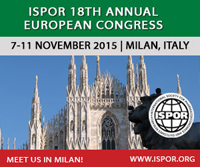Low-protein diet for chronic kidney disease in the Caserta Local Health Unit: the SaniARP Initiative
DOI:
https://doi.org/10.7175/fe.v16i2.1176Keywords:
Low-protein diet, Dialysis, Chronic kidney diseaseAbstract
INTRODUCTION: In clinical practice, the interest in the use of low-protein food for patients suffering from chronic kidney
disease has increased. Currently, these products are not yet contemplated in the essential levels of assistance but the Italian regions deliver, low-protein food discretionally using their own funds. The Campania Region, in 2010, interrupted the distribution of these products. With the exception of Caserta which took up distribution again in 2013. OBJECTIVE: The aim of this paper is to describe an initiative put in place by Caserta which has decided to invest in prevention. MATERIALS AND METHODS: A treatment plan for the distribution designed by a team of in-house nephrologists and data are recorded using Saniarp, a web-based platform. RESULTS: In the observation period patients with a prescription of low-protein food products were 869. The mean age was 61 years. The average cost patient / month for the nutritional treatment was 59 Euro. The average cost patient / month for any type of drug was 632 Euro. In particular, 48 Euro for EPO, 277 Euro for Chelate Agents, 16 Euro for antihypertensive therapy. DISCUSSION AND CONCLUSIONS: The policy put in place by the LHU Caserta improved care of kidney patients. The results available to date are still incomplete and do not enable us to clearly assess the benefits both in clinical and economic terms which can be produced by a low-protein diet in kidney patients. In the perspective of third party payers to budget this expense it appears entirely sustainable especially in view of the fact that this dietary treatment might delay the onset of dialysis therapy and lead to lower comorbidity for the patient.
References
Brunori G, Bellizzi V, Cupisti A, et al. Terapia nutrizionale nell’IRC in fase conservativa: suggerimenti di pratica clinica e di applicazione delle Linee Guida. G Ital Nefrol 2013; 30: supplemento Linee Guida
Barsotti G. Perchè una dieta nella insufficienza renale cronica? Fondazione Italiana del Rene 2006. Disponibile su http://www.fondazioneitalianadelrene.org/wp-content/uploads/2010/09/Barsotti_dieta.pdf
Aparicio M, Bellizzi V, Chauveau P, et al. Protein-restricted diets plus keto/amino acids a valid therapeutic approach for chronic kidney disease patients. J Ren Nutr 2012 ; 22: S1-21; http://dx.doi.org/10.1053/j.jrn.2011.09.005
Levey AS, Greene T, Sarnak MJ, et al. Effect of dietary protein restriction on the progression of kidney disease: long-term follow-up of the modification of diet in renal disease (MDRD) study. Am J Kidney Dis 2006; 48: 879-88; http://dx.doi.org/10.1053/j.ajkd.2006.08.023
Cianciaruso B, Pota A, Pisani A, et al. Metabolic effects of two low protein diets in chronic kidney disease stage 4-5-a randomized controlled trial. Nephrol Dial Transplant 2008; 23: 636-44; http://dx.doi.org/10.1093/ndt/gfm576
Menon V, Kopple JD, Wang X, et al. Effect of a very low protein diet on outcomes: long-term follw-up of the modification of diet in renal disease (MDRD) study. Am J Kidney Dis 2009; 53: 208-17; http://dx.doi.org/10.1053/j.ajkd.2008.08.009
Cianciaruso B, Pota A, Bellizzi V, et al. Effects of low-versus moderate-protein diet on progression of CKD: follow up of a randomized controlled trial. Am J Kidney Dis 2009; 54: 1052-61; http://dx.doi.org/10.1053/j.ajkd.2009.07.021
Fouque D, Laville M. Low protein diets for chronic kidney disease in non-diabetic adults. Cochrane Database Syst Rev. 2009: CD001892; http://dx.doi.org/10.1002/14651858.CD001892.pub3
Bellizzi V, Chiodini P, Cupisti A, et al. Very low-protein diet plus ketoacids in chronic kidney disease and risk of death during end-stage renal disease: a historical cohort controlled study. Nephrol Dial Transplant 2015; 30: 71-7; http://dx.doi.org/10.1093/ndt/gfu251
Riccio E, Di Nuzzi A, Pisani A. Nutritional treatment in chronic kidney disease: the concept of nephroprotection. Clin Exp Nephrol 2015; 19: 161-7; http://dx.doi.org/10.1007/s10157-014-1041-7
Trifirò G, Fatuzzo PM, Ientile V, et al. Expert opinion of nephrologists about the effectiveness of low-protein diet in different stages of chronic kidney disease (CKD). Int J Food Sci Nutr 2014; 65: 1027-32; http://dx.doi.org/10.3109/09637486.2014.950209
D.M. 8 giugno 2001. Assistenza sanitaria integrativa relativa ai prodotti destinati ad un’alimentazione particolare. G.U. n.154 del 5 luglio 2001
NICE. Chronic kidney disease: nationial clinical guideline for early identification and management in adults in primary and secondary care. NICE guidelines [CG182], 2014. Disponibile su www.nice.org.uk/Guidance/CG182
National Kidney Foundation. K/DOQI clinical practice guidelines for chronic kidney disease: evaluation, classification, and stratification. Am J Kidney Dis 2002; 39: S1-266
Protocollo d’intesa tra Asl Caserta e Federfarma sulla distribuzione alimenti aproteici ai pazienti nefropatici in classe 3B, anno 2013
Degli Esposti L, Sturani A, Quintaliani G, et al. Administrative databases of the Local Health Unit: possible use for clinical governance of chronic kidney disease. G Ital Nefrol 2014; 31
Mennini FS, Russo S, Marcellusi A, et al. Economic effects of treatment of chronic kidney disease with low-protein diet. J Ren Nutr 2014; 24: 313-21; http://dx.doi.org/10.1053/j.jrn.2014.05.003
Published
How to Cite
Issue
Section
License
Authors who publish with this journal agree to the following terms:
- Authors retain copyright and grant the journal right of first publication with the work simultaneously licensed under a Creative Commons Attribution-NonCommercial 4.0 License that allows others to share the work with an acknowledgement of the work's authorship and initial publication in this journal.
- Authors are able to enter into separate, additional contractual arrangements for the non-exclusive distribution of the journal's published version of the work (e.g., post it to an institutional repository or publish it in a book), with an acknowledgement of its initial publication in this journal. The Publication Agreement can be downloaded here, and should be signed by the Authors and sent to the Publisher when the article has been accepted for publication in this journal.
- Authors are permitted and encouraged to post their work online (e.g., in institutional repositories or on their website) prior to and during the submission process, as it can lead to productive exchanges, as well as earlier and greater citation of published work (see The Effect of Open Access).
- Authors are permitted to post their work online after publication (the article must link to publisher version, in html format)






